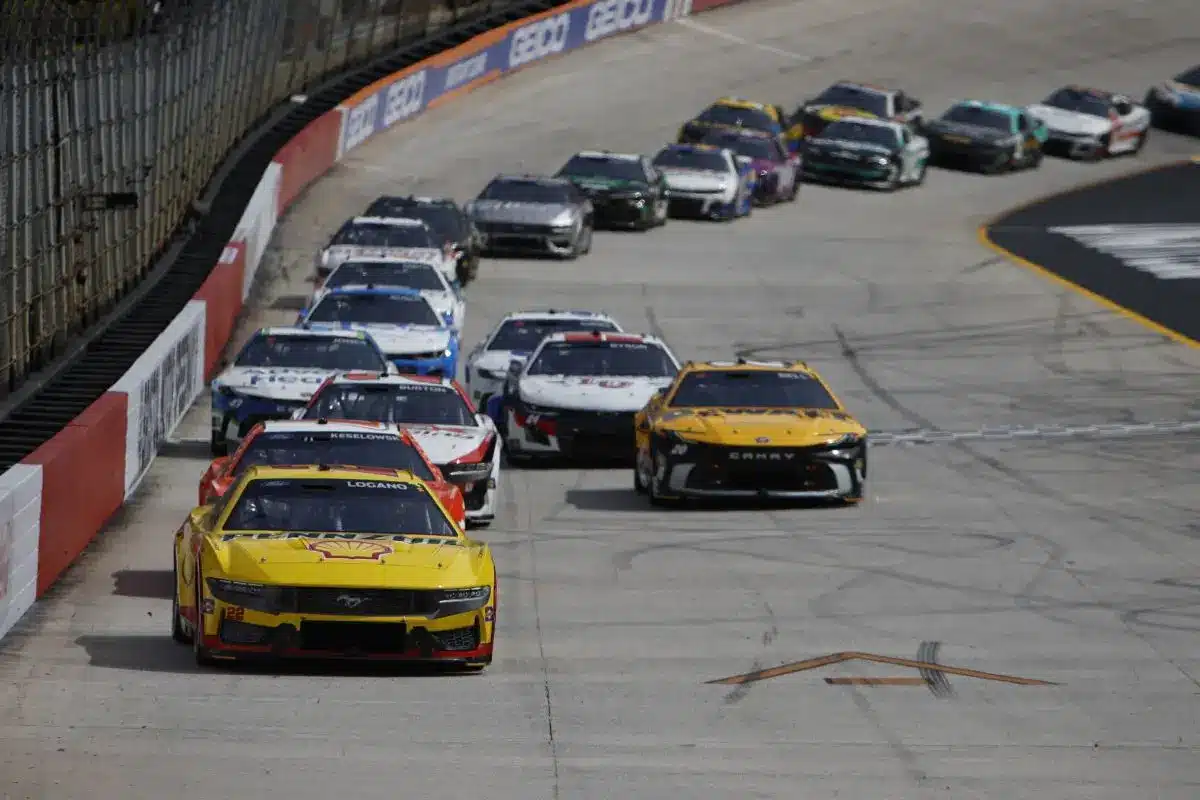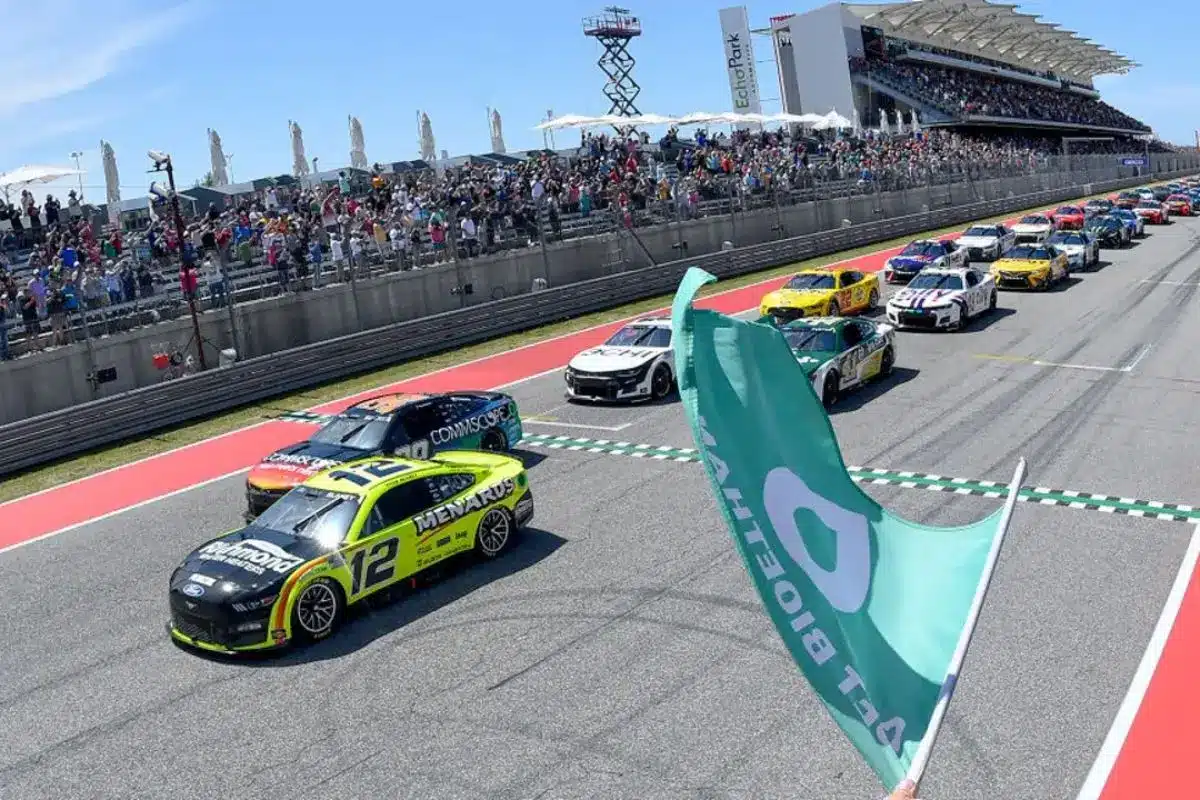NASCAR’s plan to build a new car has raised eyebrows as the sport faces growing criticism over the Next-Gen car’s ongoing issues. Fans are questioning if NASCAR is on the right track, with many feeling their concerns are being ignored. Despite promises of better racing, the Next-Gen car still struggles with key problems, leaving fans wondering if a new model is really the answer. Will NASCAR make the right move?
Key Highlights
- Critics argue NASCAR should refine the Next-Gen car rather than pursue a new Generation-8 model.
- NASCAR Fans express skepticism and feel unheard due to unresolved issues with the Next-Gen car.
- Short-track performance issues persist, undermining the traditional NASCAR appeal and causing fan discontent.
- Financial constraints on teams make significant changes challenging, complicating the transition to a new vehicle.
- NASCAR’s operational decisions, including the playoff structure, are under scrutiny for fairness and alignment with fan expectations.
The NASCAR Next-Gen Car Under Fire
The Next-Gen Car has become a focal point of dispute within the NASCAR community, as its design and performance continue to draw considerable criticism. The primary grievances stem from the vehicle’s poor handling characteristics and the disappointing short-track package. These issues represent a notable departure from the sport’s traditional appeal, which has historically celebrated competitive racing on tracks less than a mile long.
While the NASCAR Next-Gen cars have shown promise on intermediate tracks, where racing quality has significantly improved, the growing concerns indicate a troubling shift away from NASCAR’s foundational racing ethos. Critics argue that these design flaws are not merely technical oversights but indicative of a broader tactical misalignment within NASCAR’s leadership.
The decision to prioritize future developments over rectifying current inadequacies has exacerbated this divide. NASCAR COO Steve O’Donnell’s recent comments have further ignited discontent, with fans voicing their dissatisfaction across social media platforms. This sentiment highlights the widening chasm between NASCAR’s administrative vision and the expectations of its dedicated fanbase.
The polarization within the community emphasizes a critical moment for NASCAR. As the sport navigates these turbulent waters, the Next-Gen Car’s shortcomings symbolize a potential identity crisis. There exists an urgent need for NASCAR to address these performance issues to realign the sport with its core values.
Failure to do so risks alienating a loyal fanbase and compromising the sport’s rich legacy. Therefore, the discourse surrounding the Next-Gen Car is not merely about specifics but about preserving NASCAR’s storied tradition.
Is NASCAR Out of Ideas?
NASCAR’s dilemma surrounding the Next-Gen car raises questions about the organization’s current path and tactical foresight. Introduced with high expectations in 2022, the Generation 7 vehicle was touted as a guiding light of technical creativity, promising closer racing and improved fan engagement.
Yet, three years later, the absence of a viable solution to the short-track racing issues—a cornerstone of the sport—has left fans disheartened and the organization in a conundrum.
NASCAR’s Chief Operating Officer, Steve O’Donnell, recently hinted at the possibility of a Generation-8 car, stating, “We’re working on everything.” This response highlights the complexity of the situation but also reflects a potential misalignment of priorities.
.@NASCAR COO Steve O'Donnell on whether the sanctioning body is already starting to draw up a next-generation Gen-8 car: "We're working on everything." pic.twitter.com/YjrwwtpguQ
— Adam Stern (@A_S12) December 13, 2024
The logical course of action, many might argue, would involve refining the existing NASCAR Next-Gen model rather than venturing into uncharted territory with a new car. The risk of repeating past mistakes looms large, as does the potential for new, unforeseen challenges that a Generation-8 car might entail.
The tactical decision to pursue a new vehicle rather than optimizing the current one suggests that NASCAR may indeed be grappling with a scarcity of viable options.
The fundamental question remains: can NASCAR recalibrate its strategy to effectively address current shortcomings without further alienating its fanbase?
As the organization navigates these turbulent waters, the need for decisive action and creative problem-solving is more pressing than ever. The uncertainty surrounding NASCAR’s next move leaves stakeholders pondering the future path of a sport deeply rooted in tradition and innovation.
Experimenting With Short-Track Packages
Recent efforts to rejuvenate short-track racing in NASCAR have centered around experimenting with tire packages, a vital component in improving competition dynamics. The 2024 NASCAR Cup Series campaign marked a calculated shift, particularly with Goodyear’s introduction of a softer left-side tire compound during the Martinsville playoff race. This initiative was not merely a trivial adjustment but a deliberate attempt to energize the short-track racing experience, which has been under scrutiny for its lack of competitive unpredictability.
The impact of this tire experiment was palpable; the Martinsville race became an especially engaging event—a striking contrast to previous races, such as the Bristol Motor Speedway contest, where Kyle Larson’s dominance highlighted the monotony critics lament. Ryan Blaney’s victory at Martinsville, punctuated by six drivers leading for over 30 laps, signaled a rejuvenating departure from the predictable outcomes that have plagued recent short-track events.
Yet, this experiment raises broader questions about the sustainability of such piecemeal solutions. Dale Earnhardt Jr.’s concerns highlight the existential stakes for short-track racing if fundamental issues remain unaddressed.
Meanwhile, Denny Hamlin’s dismissal of a Next-Gen 2.0 overhaul emphasizes the financial constraints teams face in adapting to substantial technological changes.
As NASCAR continues its exploration of tire dynamics as a temporary remedy, the broader discourse questions whether a new Generation-8 vehicle is necessary for long-term revitalization. While softer tire compounds have momentarily improved the spectacle, the ongoing dialogue reflects a sport at a crossroads, balancing innovation with economic realities.
NASCAR Fans Express Apprehension After Next-Gen Failure
Despite NASCAR’s efforts to innovate, fans remain skeptical, particularly following the perceived shortcomings of the Next-Gen vehicle. The organization faces a considerable challenge in regaining the trust of its passionate fanbase, who feel their voices have long gone unheard. The introduction of an entirely new Generation-8 car has not been met with much enthusiasm, as the prevailing issues with the current Next-Gen model have yet to be addressed. This apprehension is exacerbated by the perception that NASCAR’s priorities are misaligned with the immediate concerns of its supporters.
The fans’ apprehension can be attributed to several factors:
- Lack of responsiveness: NASCAR has historically been viewed as resistant to incorporating fan feedback into its decision-making processes.
- Unresolved mechanical issues: Persistent problems with the Next-Gen vehicles have left fans questioning the effectiveness of NASCAR’s engineering and design strategies.
- Misplaced priorities: Critics argue that the organization is focusing on developing new models instead of refining and fixing existing vehicles.
- Prolonged timelines: The development and implementation of a new car will take years, leaving current issues unresolved in the interim.
The sentiment expressed by fans on social media platforms highlights the frustration and disillusionment felt by many. One fan bluntly criticized NASCAR’s focus, stating, “Working on everything… except making a half decent stock car 😭😭.”
Another fan pointed out the urgency of addressing existing problems: “They’re working on the things that are not essential.”
The challenge for NASCAR is clear: to demonstrate that it has learned from past errors and is committed to delivering a product that meets the high expectations of its dedicated fanbase.
Other Concerns Beyond the Next-Gen Car
Beyond the technological issues associated with the Next-Gen car, NASCAR faces scrutiny over several other aspects of its operations, particularly the contentious win-and-in postseason structure. This format has come under fire as it often sidelines drivers with outstanding performances throughout the season. For instance, Kyle Larson and Christopher Bell, despite amassing nine victories collectively, were unable to secure a spot in the Championship 4. This outcome raises questions about the fairness and effectiveness of the current playoff system, prompting calls for a reassessment to better reflect consistent performance over sporadic wins.
Moreover, fans have voiced concerns about the need for more horsepower in future engine packages. The clamor for improved power highlights a desire for more thrilling and competitive races, raising the excitement level for both drivers and spectators. One fan’s remark, “Let’s just get HP on the next engine package. Idc how,” captures this sentiment, urging NASCAR to prioritize engine improvements to reignite interest and engagement.
While the technological refinement of the Next-Gen car is essential, the broader dynamics of competition and fan engagement are likewise significant in shaping the sport’s future path. The response from NASCAR will be indicative of its commitment to evolving alongside its fanbase, honoring both tradition and innovation in motorsport.
News in Brief: NASCAR’s Plan to Build a New Car Draws Criticism
NASCAR’s initiative to develop a new car amidst ongoing challenges with the Next-Gen model emphasizes the complexity of balancing innovation and performance. The decision to experiment with short-track packages highlights a proactive approach, yet apprehension among fans suggests unresolved issues persist.
Beyond mechanical difficulties, broader concerns must be addressed to maintain the sport’s integrity and appeal. A thorough evaluation of tactical options is crucial for NASCAR to effectively navigate these challenges and guarantee long-term success and sustainability.
ALSO READ: Hilarious NASCAR Fan Stories About Drivers, NASCAR Drivers Caught Off-Guard




